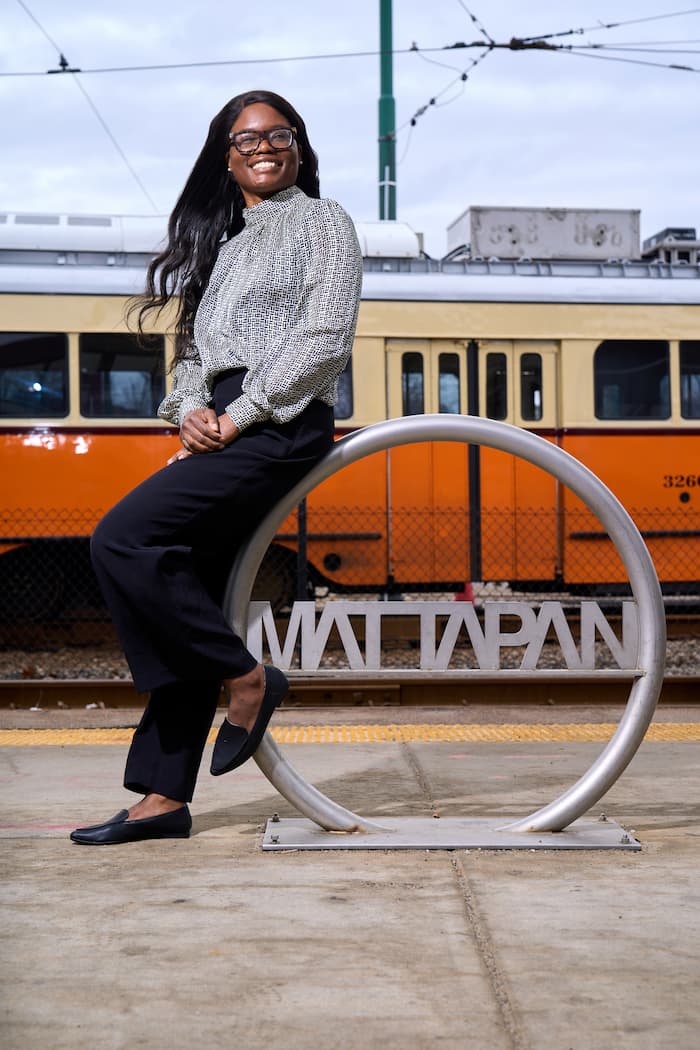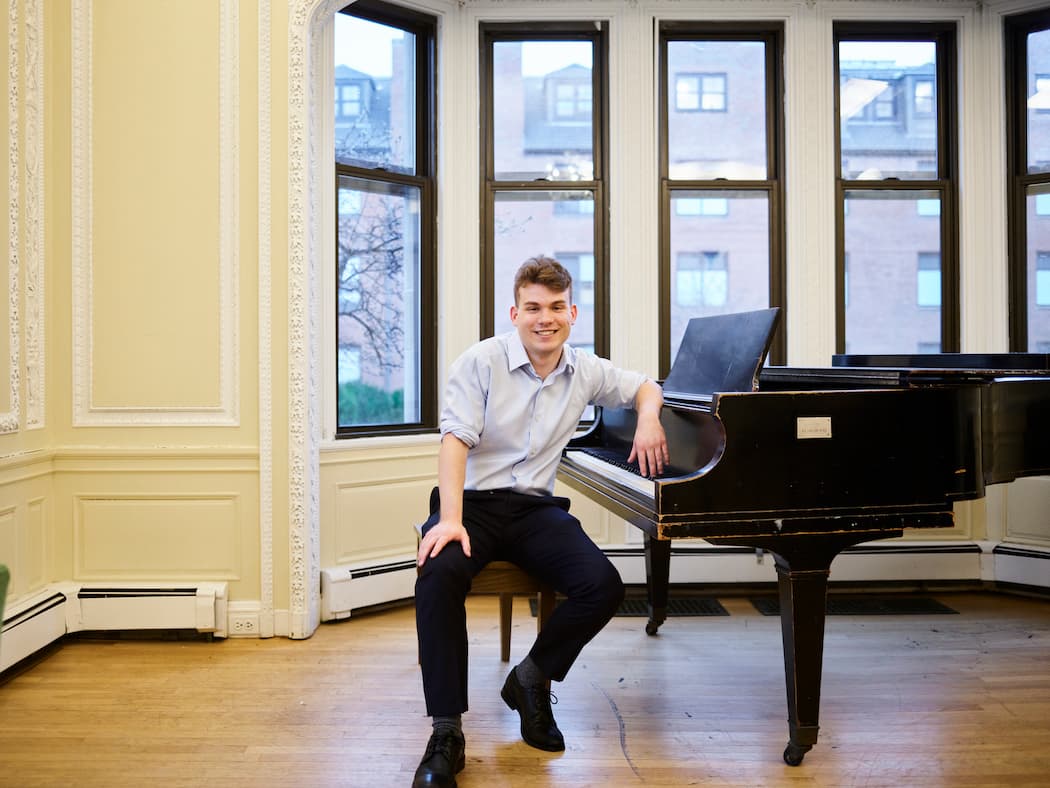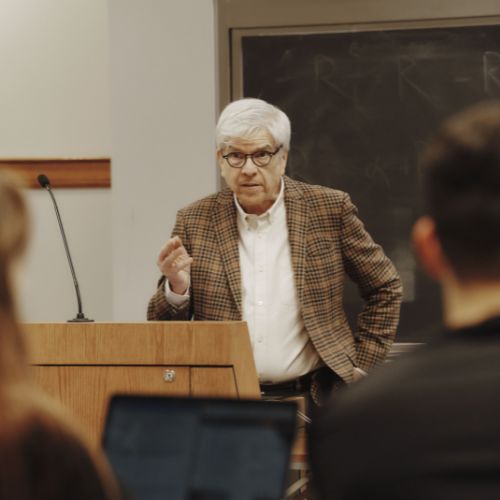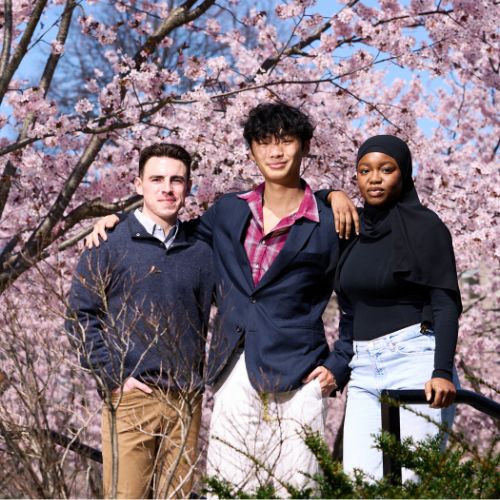The new edition of Carroll Capital landed in mailboxes nationwide this month, featuring a lively array of articles—including one by John and Linda Powers Family Dean Andy Boynton on what managers and leaders everywhere can learn from Boston College’s motto, “Ever to Excel.”
.jpg)
Illustration by Bryce Wymer in "Breaking Loose."
The annual publication of the Carroll School of Management, Carroll Capital throws light on trends in business and society while telling stories about extraordinary alumni and students as well as faculty and school initiatives. Many of the articles illustrate Boston College’s distinctive style of management education, which includes the “bridge” that the University has been building between management, the humanities, and the sciences.
A special addition this year is a test for readers to take (if they dare). Six years ago, Carroll School faculty and deans began tackling the question of what they want every student to remember from their coursework. They came up with a rigorous assessment, consisting of 100 questions touching on everything from ethics to inventory. Included in the new edition is a 12-question version of this senior assessment.
Another article, “Five Years Out,” revisits the Class of 2020. As students, they had expectations for the jobs they would hold and the lives they would lead, just like any other college cohort. Covid-19 upended those assumptions, but for many, the virus also opened unexpected windows.
Other stories look at alumni who are bringing their BC values and know-how to an eclectic range of business ventures and social initiatives. They include, among others:

Shavel’le Olivier ’14 in "Not Shying Away."
- Luke Mairo ’17, who is taking on a problem familiar to many owners of electric vehicles—finding a place to recharge their cars, especially in the city. He and a cofounder have launched a company, Voltpost, which takes existing lampposts and retrofits them as EV charging stations. The story looks at Mairo’s enterprise and two other alumni eco-entrepreneurs forging other innovations.
- Sarah Gargano ’92, who represents iconic luxury brands as CEO of Sarah Gargano Communications. There was a time when people would buy high-end products because of name recognition alone, she explains, “but this younger generation values community—do luxury brands have a sense of community that I can relate to?” It’s Gargano’s business to find out.
- Shavel’le Olivier ’14, executive director of the Boston grassroots organization Mattapan Food and Fitness Coalition. The self-described introvert is gaining wide attention for her leadership as a social entrepreneur in the community she calls home, while also connecting her alma mater to one of the city’s most disenfranchised neighborhoods.
The 2025 edition of Carroll Capital also profiles students who could not wait until after graduation to launch their own companies, including a dating app, Ophelia, that shifts the emphasis to in-person connections. In addition, one of the feature articles offers a close-up view of co-curricular experiences today. Intense application processes and exclusivity are now expected realities of some of the most popular management clubs. So what’s a student to do? Carve out your own path, say career advisors.
This edition also turns a focus on non-management students who are minoring at the Carroll School, crossing the bridge from the arts and sciences to management. More than 1,500 of those students are now enrolled in seven management minors—representing the largest expansion in the history of the Carroll School. In the article, “Minor Miracle,” we raise the question: Can a handful of management courses alter the trajectory of an arts and sciences student?

Ryan Barcy '25 in "Minor Miracle."
There are stories about the Carroll School’s world-class faculty, including their hobbies off the Heights (there’s more overlap with their teaching and research than you’d think); new research on financial advice given by robots, which can help manage your money, but at a price; and management professors who are challenging the prevailing notion of the “ideal worker.”
Among other alumni profiled are Gordon Wayne '23, who used his experience of homelessness, living out of his car for over a year after high school, to inspire a movement; and Dave Epstein, MBA ’00, the multidisciplinary weather man.
The cover essay by Boynton parses out one of the most familiar sayings at Boston College. With its roots in classical literature, “Ever to Excel” has captured the spirit of Boston College’s rise in prominence. But can the University’s motto also guide leaders today as they search for excellence and help shape the future of their organizations? The dean says “yes,” if they tap into the “Ever to Excel” habits of learning and leadership—and break free of organizational constraints.
The last word in the publication goes to Marc Seidner, MCAS ’88, P ’24, a leader in the asset management industry and namesake of the Seidner Department of Finance at Boston College. In the Q&A, “Paying it Forward,” Seidner says: “You know, you could spot a BC kid a mile away. They know the principles, like the notion of men and women for others. They’ve been formed by the whole experience and the core curriculum. It creates these unbelievably poised, eloquent, thoughtful professionals that I think are cast differently than others. I really do….”
Carroll Capital
Read our latest edition
Carroll Capital, the annual print publication of the Carroll School of Management at Boston College, throws light on trends in business and society while telling stories about alumni and students as well as faculty and school initiatives.






